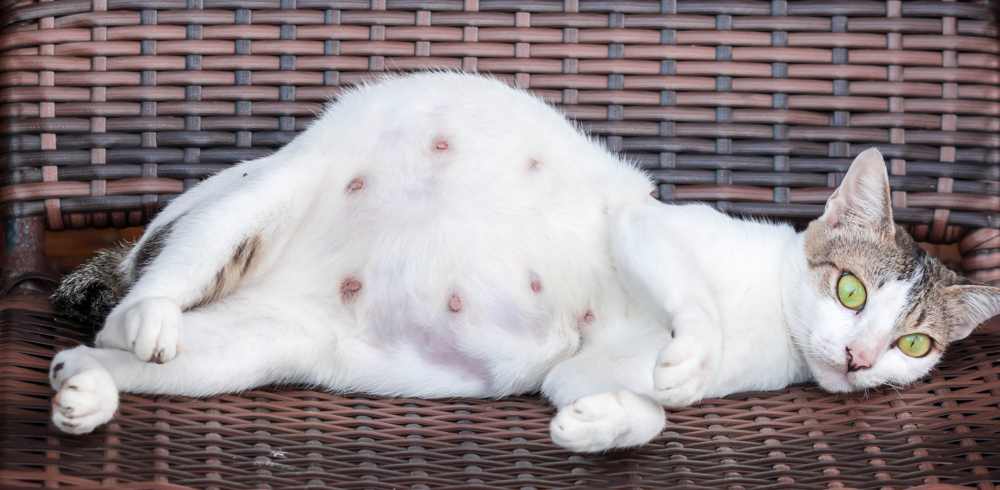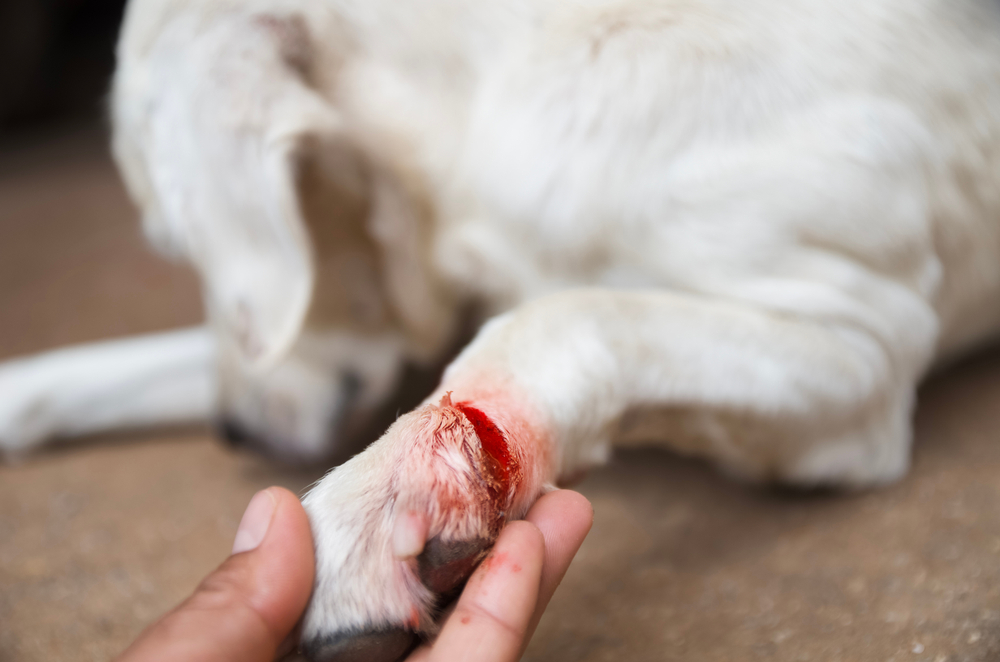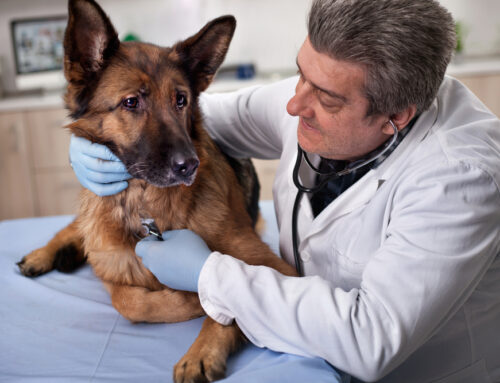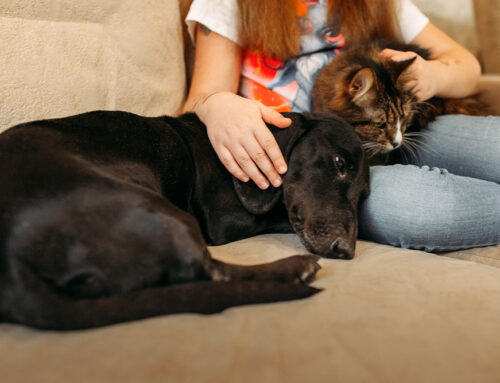You want your pet to receive the care they need, but you may not know if you should schedule an appointment for your pet’s issue, or if you need to rush them in for immediate medical attention. Our team at Guam Pet Hospital wants to provide guidelines to help you know what constitutes a veterinary emergency.
A pet who suffers severe injury or trauma is experiencing an emergency, and should be treated promptly by a veterinary professional.
- Hit by a car — Common medical problems encountered after a pet is hit by a car include fractured bones, lacerations, head trauma, degloving injuries, ruptured bladder, internal bleeding, and chest and lung injuries that result in difficulty breathing. If your pet is hit by a car, take them to the veterinary hospital immediately, whether or not they have visible injuries, because they could have internal damage that is not yet evident.
- Animal fights — Bites and scratches sustained during a fight between pets or between your pet and a wild animal should be addressed by a veterinary professional immediately. These wounds can easily become infected, and the traumatized tissue is more easily treated in the first hour after the injury.
- Lacerations — If your pet sustains a cut, they should be taken to the veterinary hospital as soon as possible, because these injuries can become infected, and they heal better if cleaned, closed, and bandaged appropriately. Severe bleeding from a laceration can be extremely dangerous for your pet. Keep pressure on the area until you can get your pet to the veterinary hospital.
Your pet is also experiencing a veterinary emergency if they are:
- Vomiting or having diarrhea — If your pet vomits or has diarrhea once and otherwise seems healthy, you can simply monitor them for signs, but if they continue to vomit or have diarrhea, or if they appear ill, you should take them to the veterinary hospital as soon as possible. These signs can indicate serious medical issues, such as ingestion of toxic substances, organ failure, intestinal obstruction, and serious infections.
- Having difficulty breathing — If your pet is exhibiting signs, including open-mouthed breathing, abdominal movement while breathing, noisy breathing, flared nostrils, and an extended head and neck, they are having difficulty breathing and should be seen immediately by a veterinary professional. Issues that can cause labored breathing in your pet include infection, heart failure, heartworm disease, trauma, asthma, and cancerous lesions.
- Pregnant and in distress — If your pregnant pet is in distress, she and her babies are in danger, and a veterinary professional should assess mother and babies to help ensure their well-being. The following conditions are emergencies for pregnant pets.

-
- Pyometra — Intact female pets exhibiting signs including decreased energy level, decreased appetite, and increased thirst and urination should be assessed for pyometra (i.e., uterine infection). Pus may be visible coming from the vulva, but if the cervix is closed, pus will not be evident. As the infection progresses, the uterus can rupture, resulting in a septic abdomen, and a poor prognosis.
- Pre-eclampsia — Growing babies use their mother’s calcium to form bones and teeth. If the mother’s body cannot compensate for the calcium loss, they can develop pre-eclampsia. Signs include restlessness, nervousness, and disorientation. The mother’s legs may become stiff, and she will pant as her body temperature and respiratory rate rise. A life-threatening condition, tetany, may occur in severe cases.
- Dystocia — You will know your pet is having difficulty giving birth if they have strong abdominal contractions for more than 30 minutes without a puppy or kitten appearing, if they cry out and lick their vulva area, if more than two hours passes between babies, or if bloody discharge is expelled prior to delivery or between babies.
- Suspected of ingesting a toxin — Numerous substances can be dangerous for your pet if ingested, including insecticides, anti-freeze, and rodenticides. Cane toads secrete toxins that can lead to death if your pet ingests them. If your pet consumes a toxic substance, contact our team at Guam Pet Hospital or Animal Poison Control. Be ready to state your pet’s weight and breed, and have the substance’s label handy so you can read the contents and concentrations. If your pet bites a cane toad, use a water hose to rinse out their mouth, and get them to the veterinary hospital quickly.
- Exhibiting neurologic issues — If your pet is disoriented, uncoordinated, circling, unable to use their limbs, or seizuring, their brain or spinal cord could be affected. Conditions that could cause these signs include epilepsy, tumors, degenerative disc disease, autoimmune disease, infections, and stroke. Your pet will need to be assessed by a veterinary professional immediately.
- Suffering with an eye injury — Eye injuries can quickly become infected if not addressed promptly. If your pet is squinting or tearing excessively, or if their eye is visibly abnormal, take them to the veterinary hospital as soon as possible.
Knowing the circumstances that constitute a veterinary emergency will ensure your pet gets the help they need. If your pet is experiencing any of the above veterinary emergencies, contact our team at Guam Pet Hospital immediately.








Leave A Comment